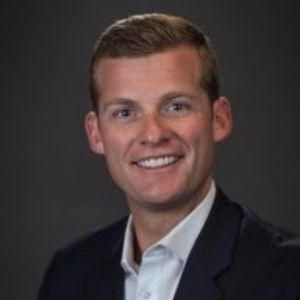Sizing up the borrower
When you ask a long-term care lender or investor what they look for in a would-be borrower, the answer always seems so self-evident: in so many words, they favor “an experienced provider with a good reputation and a passion for the business.” Of course, there is much more to say on that, as longtime REIT operators David Boitano and Alex Chavez discussed at the NIC Western Regional Symposium. More recently, they provided helpful elaboration in an interview with Nursing Homes/Long Term Care Management Editor- in-Chief Richard L. Peck.
Peck: To begin with, what about the thought that one should only lend to or invest in an owner/operator—does this still hold true?
Alex Chavez: Owning the asset isn't quite as an important factor these days. We're seeing a lot of operating companies that are structurally separating the operational arm from the real estate arm. The real estate is owned by a holding limited liability company and the operator leases it. The reason for this is to strengthen the company's protection against liability judgments.
David M. Boitano: That's true, companies are structuring themselves in this way for that reason. And that does seem to be a prudent financial measure to take in this day and age. For that reason, third-party management companies are viewed as potentially sound prospects.
Peck: In any case, what are some of the first things you look for—those crucial first impressions—in a would-be borrower?
Chavez: It's always been our view that who you lend to is more important than what you lend on. Key factors we look for are integrity, reputation, experience….
Boitano: Yes, it's the same with us: experience in the business, the track record, the level of support that exists throughout the organization beyond the top people—because a sound business is built on more than any one person or small group of people.
Chavez: And once the term sheet is signed, we do our due diligence—including a full background check that entails a criminal background check.
Boitano: A criminal background check probably wouldn't be typical for us, in that this industry is a small community where “everybody knows everybody.” Perhaps with a new name coming into the picture, though, we would.
Chavez: We generally do it for new or first-time customers. With known parties, we might be somewhat more informal.
Peck: What are business management approaches or techniques that you favor?
Chavez: We like to see whether borrowers have been involved in credit markets before. We also find today that a lot of the smaller operators have become quite sophisticated with their internal accounting and financial systems, as well as in their overall management strategies.
Boitano: I agree, the level of sophistication is not what it used to be in these operations; it's much better. But you still need people who understand a balance sheet and an income statement and who are thinking not just month to month, but five years out in terms of the investments they need to make to stay viable.
Chavez: Of course, MDS coding skills are highly important in this business and, fortunately, most operators I'm aware of have access to good skills in this area—either on staff or from consultants. They are acutely aware of the impact of proper MDS coding on their financial health.
Peck: What about marketing strategies for the organization? David, at the regional symposium, you mentioned the two basic strategies of word-of-mouth reputation versus greater media orientation. Care to elaborate?
Boitano: In this field, marketing comes down to the individual building and how that administrator and property staff operate that building. If they do it well, the marketing largely takes care of itself.
Chavez: That's true, you need good quality of care; you provide it and measure success facility by facility. If you don't have word-of-mouth reputation based on this kind of operation, recognized especially by your referral sources, no amount of media campaigning will help you.
Peck: How do you assess the outcomes of an operation? Do you focus on survey results, for example?
Chavez: Surveys are one indicator, but they can be quite subjective and vary not just from state to state, but within states. For that reason, one tends to take survey results with a grain of salt. We also look at resident and family satisfaction studies, as well as ask around and talk to referral sources and the nursing home staff themselves. You'd be surprised how honest the people can be, both positively and negatively. Also, personal site visits are important, and it doesn't take long to get a feel for an operation….
Boitano: I believe that you get a feel for the operation's quality within the first two minutes of walking into a building. It's like entering a restaurant and knowing within moments whether you really want to eat there. Then, as you go along, you tend to develop further impressions that support that feeling. Also, in multiple facility operations, it's not a bad idea to show up in buildings where they're not expecting you. That can be very informative.
Chavez: Yes, we do that, in fact. It's like secret shopping or mystery shopping. It's probably the best way of all to evaluate an operation.
Peck: How do you assess operators' strategies for investing in themselves—for example, investing in staff versus investing in property upgrades?
Boitano: Well, the physical asset does have to be at a certain level of quality or upkeep. But provision of care is the priority. So, do you have enough staff that are properly trained? Do you buy into the idea that if staff understand their work, they're more likely to enjoy their work? Are you chasing other investments at the expense of this?
Chavez: You know, it's less common for a DON to complain of having to work in a physical plant that is outdated or perhaps inadequate in certain aspects. More often, it's the level of resources supporting the provision of care that the DON complains about. You can get a good sense pretty quickly whether the level of resources is adequate in a given facility.
Peck: What would you consider to be the two or three long-term care “best practices”?
Chavez: Number one: investing in human resources. I remember one operator who was so dissatisfied with the level of preparation of new nursing aides coming on staff that he finally set up his own training program aimed at achieving three times his state's requirements. The result was that he ended up with one of the top-performing facilities in the state. Generally, staff want to do a good job, and when they know that their employer takes an active interest in their training and development, you can sense that when you tour a facility. It's definitely one of the things I look for. I also look for management and staff awareness of where their facility stands in the community. Like David said earlier, they can be very honest about who they admire and who they think is shortchanging the customer.
Boitano: It's true, facility staff, especially at the top management level, do know their competitors—who's coming in, who's leaving, who's highly regarded, who's not. I also look for an interest in innovation. One approach I've seen implemented more frequently of late has been the Eden Alternative, and there's more innovation like that going on throughout the industry.
Chavez: Another recent trend I'm seeing is a desire to cater to families, to get them involved more deeply in the facility. There's a growing awareness that the better your relationships are with the families, the better things go in general.
Peck: Finally, what do you see as a turnoff in people seeking financing?
Boitano: I would say an extremely short-term focus on the financial aspects of the operation is a major turnoff. Finances are important, obviously, but this is a business that provides care and doesn't really reward a short-term focus. I know that sometimes the public companies take the rap for being too focused on quarterly results, but in general I think that's a bad rap against them. The public companies I know of are highly aware of the nature of this business and that success grows out of a long-term, ongoing process.
Chavez: I totally agree. This is really a long-term business. Another related turnoff I see is when someone seems to think he has a magic potion for turning things around on a dime. He comes into an operation and he's got the formula to fix it right away. This raises a red flag for me because this business doesn't operate that way. The same applies to people who want to expand the scope of their business into new and unfamiliar fields without doing their homework. They've run a skilled nursing facility or an assisted living facility and now they want to run the other, without reflecting that these are two different operational models. It is really difficult to do both equally well, and it is very easy to stray into deep waters. When I see this type of business plan, I ask myself, did they do their homework? Have they acquired the expertise they need? It is not easy to pull off or to sell to an investor.
David M. Boitano is Senior Investment Officer and Vice President for Nationwide Health Properties, based in Fircrest, Washington.
For more information, phone (253) 572-2210, e-mail boitano@nhp-reit.com, or visit https://www.nhp-reit.com. Alex Chavez is Director of the Healthcare Real Estate Group at CapitalSource, based in Westlake Village, California. For more information, phone (818) 540-2105, e-mail achavez@capitalsource.com, or visit https://www.capitalsource.com.

Richard L. Peck was editor in chief of I Advance Senior Care / Long-Term Living for 18 years. For eight years previous to that, he served as editor of the clinical magazine Geriatrics. He has written extensively on developments in the field of senior care and housing.
Related Articles
Topics: Articles , Finance











